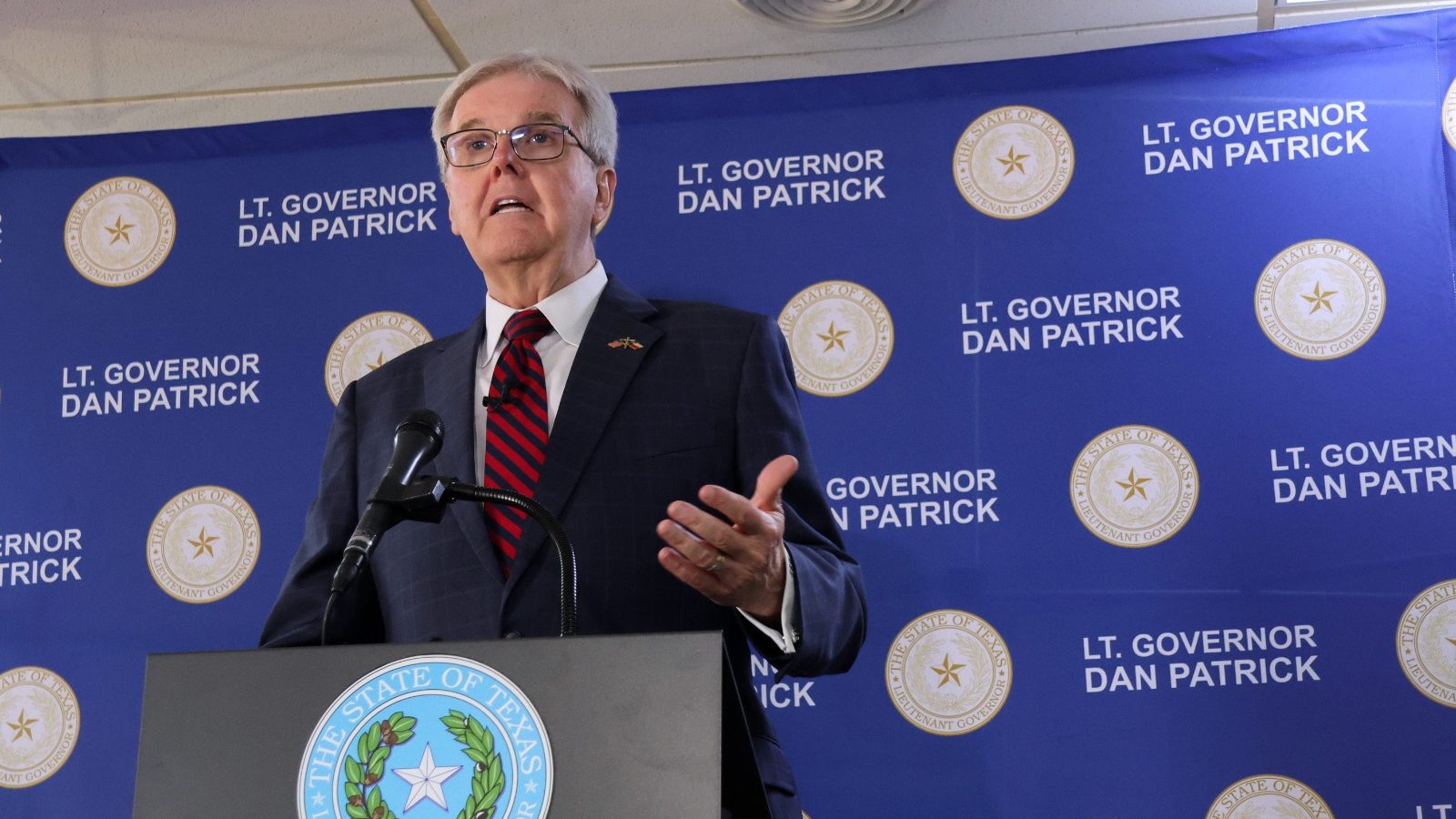Gambling Expansion In Texas Unlikely As Lt. Gov. Patrick Announces Reelection Bid
Patrick is seeking another four-year term — bad news for any hope of casinos, sports betting
2 min

Gambling expansion in Texas, which has been nonexistent, will probably continue to be nonexistent for the next four years as Lt. Gov. Dan Patrick launched his reelection campaign, effectively keeping the door on casino gaming and sports betting closed.
Patrick’s announcement in August that he’s seeking another four-year term represents a major setback for gambling proponents who have poured millions into lobbying efforts and campaign contributions. As Senate president, Patrick wields considerable power over which legislation reaches the floor, and he’s made it clear that gambling bills — at least those introduced by Democrats — aren’t welcome.
“It’s groundhog day,” longtime Austin gambling consultant Mike Lavigne told the Dallas Morning News. “The situation has not changed.”
The lieutenant governor has consistently maintained that Republican votes simply don’t exist in the Senate for gambling expansion, regardless of his personal views on the matter. According to the Morning News, Patrick won’t allow gambling bills pushed by Democrats to advance, following his pattern on other major issues.
Patrick’s reelection campaign launch on Aug. 19 featured endorsements for several 2026 Senate candidates he supports. With no major opposition expected in the March GOP primary and Patrick being a heavy favorite against likely Democratic challenger state Rep. Vikki Goodwin of Austin, Patrick appears positioned to maintain his grip on the chamber for another term.
The timing couldn’t be worse for gambling advocates who have ramped up their efforts significantly. Miriam Adelson, the billionaire widow of Las Vegas Sands founder Sheldon Adelson, has contributed $13.7 million in political donations to support gambling expansion in Texas — a massive increase from the $3.3 million she spent in 2022.
Despite Gov. Greg Abbott’s recent endorsement of online sports betting, calling it a “huge boost” for proponents, the Senate remains the primary obstacle. Patrick has stated he would only support gambling measures if a majority of Republicans back them, a threshold that appears nowhere close to being met.
Things got worse
The 2025 legislative session actually saw gambling expansion lose ground compared to previous efforts.
In 2023, a constitutional amendment for sports betting passed the House 101-42, though it died in the Senate without a hearing. This year, according to the Morning News, gambling-related legislation couldn’t even secure hearings in the House, and proponents failed to find a Republican sponsor in the Senate.
State Sen. Bob Hall, a Republican from Edgewood, agreed with Patrick’s assessment that Republican support is lacking. Asked about gambling prospects, the Morning News reported that Hall responded with a laughing-until-crying emoji, which is hardly an encouraging sign for casino advocates.
The challenges run deeper than just Patrick’s opposition. Newly elected House Speaker Dustin Burrows has shown little interest in the issue, while many of the 26 Republican newcomers who joined the House actively oppose gambling expansion. Christian conservatives within the GOP remain strongly opposed, and the state Republican platform explicitly opposes “any expansion of gambling, including legalized casino gambling.”
Las Vegas Sands, which maintains 103 registered lobbyists in Austin, declined to comment on how Patrick’s reelection announcement affects their efforts. However, the Texas Sports Betting Alliance, representing 12 professional sports franchises and online gaming platforms, struck an optimistic tone.
“We look forward to working with the Lt. Governor, along with a changing Texas Senate, on the issue next legislative session,” spokesperson Karina Kling said in a statement to the Morning News.
But gambling consultant Lavigne suggested that focusing on Patrick misses the bigger picture. “Patrick is not as big a problem as the rest of the Senate is,” he told the paper. “And if they had the votes in the Senate, Patrick wouldn’t be a problem.”
With Texas lawmakers meeting only during odd-numbered years, failure to advance gambling legislation in 2025 would push the next opportunity to 2027.






